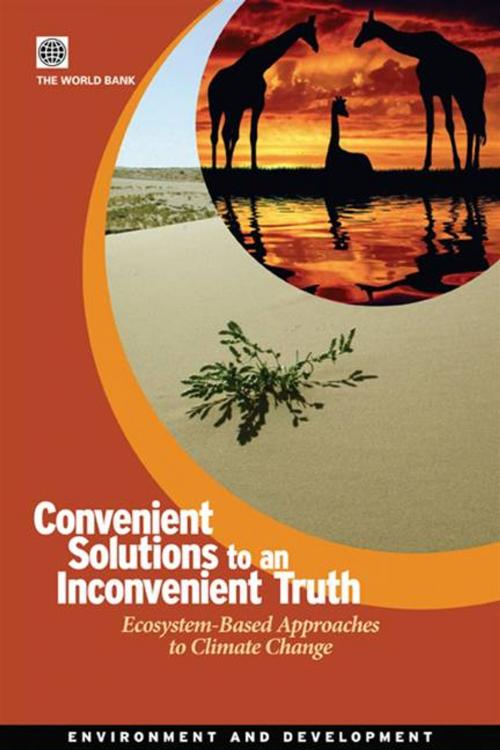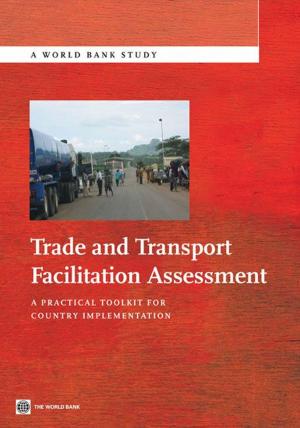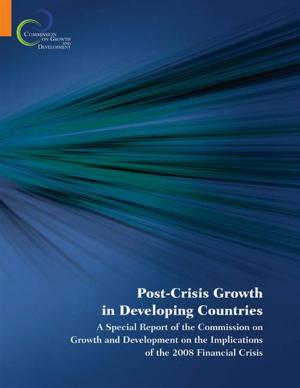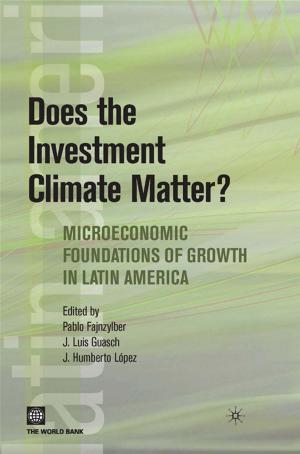Convenient Solutions For An Inconvenient Truth: Ecosystem-Based Approaches To Climate Change
Nonfiction, Social & Cultural Studies, Political Science, Government, Public Policy| Author: | World Bank | ISBN: | 9780821381267 |
| Publisher: | World Bank | Publication: | November 18, 2009 |
| Imprint: | Language: | English |
| Author: | World Bank |
| ISBN: | 9780821381267 |
| Publisher: | World Bank |
| Publication: | November 18, 2009 |
| Imprint: | |
| Language: | English |
Global warming and changes in climate will have severe and lasting impacts on national efforts to alleviate poverty and promote sustainable development. Some of the world's poorest countries and communities are the most vulnerable and are already suffering the consequences. Yet often these countries are rich in natural capital, ecosystems, and biodiversity that can contribute to solutions as they can to climate change. Biodiversity is the foundation and mainstay of agriculture, forests, and fisheries.Biological resources provide the raw materials for livelihoods, agriculture, medicines, trade, tourism, and industry. Forests, grasslands, freshwater, and marine and other natural ecosystems provide a range of services, often not recognized in national economic accounts but vital to human welfare: regulating water flows and water quality, flood control, pollination, decontamination, carbon sequestration, soil conservation, and nutrient and hydrological cycling.Current efforts to address climate change focus mainly on reducing emissions of greenhousegases, mainly through cleaner energy strategies, and on attempting to reduce vulnerability of the communities at risk by improving infrastructure to meet new energy and water needs. This bookbook sets out a compelling argument for including ecosystem-based approaches to mitigation and adaptation as a third essential pillar in national strategies to address climate change. Such ecosystem-based strategies can offer cost-effective, proven and sustainable solutions contributing to, and complementing, other national and regional adaptation strategies.
Global warming and changes in climate will have severe and lasting impacts on national efforts to alleviate poverty and promote sustainable development. Some of the world's poorest countries and communities are the most vulnerable and are already suffering the consequences. Yet often these countries are rich in natural capital, ecosystems, and biodiversity that can contribute to solutions as they can to climate change. Biodiversity is the foundation and mainstay of agriculture, forests, and fisheries.Biological resources provide the raw materials for livelihoods, agriculture, medicines, trade, tourism, and industry. Forests, grasslands, freshwater, and marine and other natural ecosystems provide a range of services, often not recognized in national economic accounts but vital to human welfare: regulating water flows and water quality, flood control, pollination, decontamination, carbon sequestration, soil conservation, and nutrient and hydrological cycling.Current efforts to address climate change focus mainly on reducing emissions of greenhousegases, mainly through cleaner energy strategies, and on attempting to reduce vulnerability of the communities at risk by improving infrastructure to meet new energy and water needs. This bookbook sets out a compelling argument for including ecosystem-based approaches to mitigation and adaptation as a third essential pillar in national strategies to address climate change. Such ecosystem-based strategies can offer cost-effective, proven and sustainable solutions contributing to, and complementing, other national and regional adaptation strategies.















